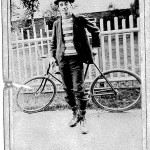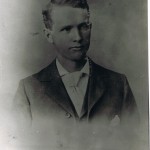At first, transgender political activist Gunner Scott hesitated to give us an interview. The media so often bungle trans coverage that it’s not hard to understand why.
Take Rita Hester’s case, for example, which continues to resonate with Scott more than a decade later. Hester—a transgender woman—was stabbed to death in Allston, Mass., in 1998. Her murder is still unsolved.
The media identified her as male, even though Hester had been living as a woman for 10 years.
“I still hold her in my heart,” said Scott, the executive director of Massachusetts Transgender Political Coalition, which, for the past 10 years, has aimed to use political channels to end discrimination against the transgender population. Every year, he calls the police and asks for updates.
“Her case did not get the same attention as other people’s did,” he said.
Other ways traditional media outlets mess up: Asking privacy-invading, personal medical questions (i.e. “Have you had surgery?”) and publishing addresses of transgender crime victims (which can lead to additional violence). Scott said it’s important to be attentive to these nuances within the transgender community; he can disagree with an article but still find it respectful if it’s reported with tact.
And while the transgender population has historically been lumped in the LGBT group, there can be differences in their needs. For one, the larger public has more difficulty understanding the transgender community. Being transgender has to do with a person’s gender identity and not with sexual orientation; sexual orientation is about who a person is attracted to.
Part of Scott’s job is to be an advocate, but even he has reservations about his image appearing in mainstream media outlets.
“I do the next day worry about getting on the train and being in my neighborhood.”
Scott, who has been threatened before, has “passing privilege,” which means he resembles a man. This makes it easier for him than, say, a 6-foot tall transgender woman.
“Being trans is a process,” he said. “For some of us, we struggle our whole lives. It isn’t just a lifestyle choice. It’s a struggle.” Scott has come out twice; the first time he went back in the closet and didn’t come out again until his 30s. One of the biggest misconceptions is that “people just wake up one day and decide they’re transgender and they transition within a week, or the next day,” he said.
Another is that transgender people want to cause trouble. “We for the most part want to put our heads down,” Scott said.
Alyssa
























